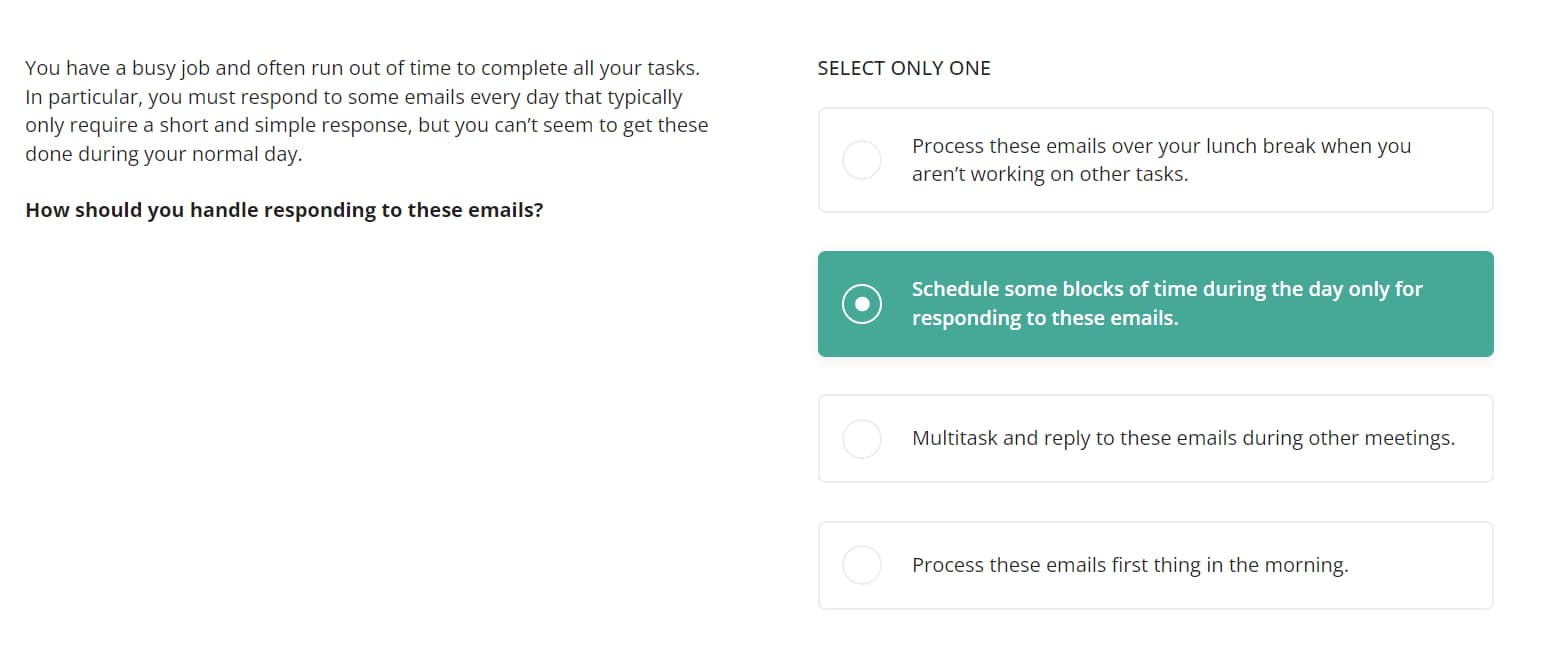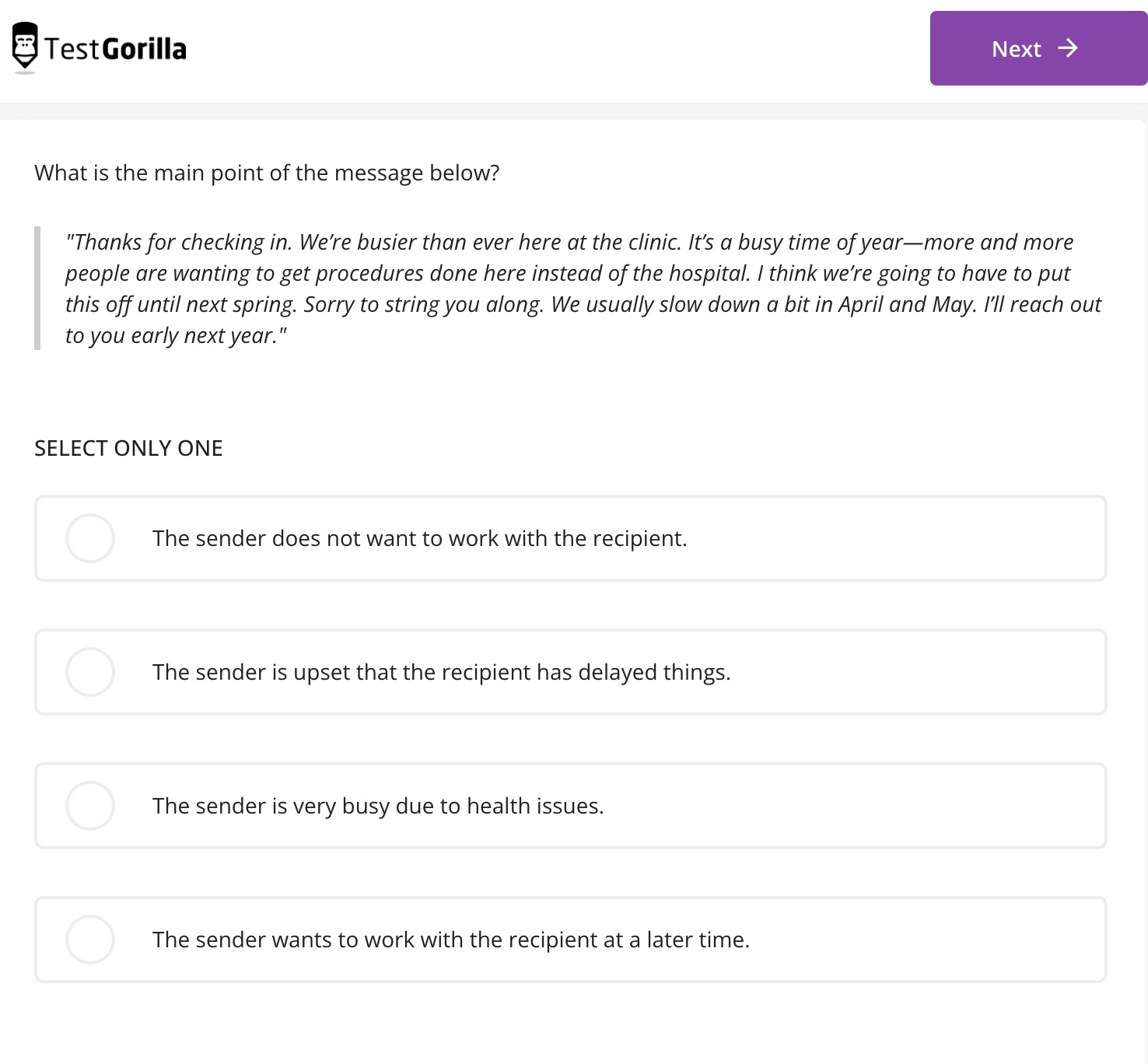Top 15 ice breakers for virtual meetings [questions, ideas, games]
Virtual communication is on the rise for more and more companies as they embrace remote and hybrid work, making ice breakers for virtual meetings a non-negotiable.
Virtual team ice breakers are interactive activities that help lighten the mood, create a cohesive culture, and dispel the awkward silence at the start of an online meeting.
Even if your team can’t meet face to face, there’s no reason they can’t build strong working relationships.
This blog post lists the top 15 virtual team ice breaker ideas and which occasions they’re best for.
What are virtual icebreakers?
Virtual icebreakers are online games and activities that help remote teams connect on a personal level. They effectively bring teammates together, remove tension during meetings, and help colleagues get to know each other. Remote working technology and online ice breakers are essential for building a cohesive team and reducing the negative impact of remote work, such as social isolation, which takes a real toll on employees, reducing productivity by up to 21%.
We have firsthand experience with the power of virtual ice breakers because they’re one of the techniques we use to run a 100% remote company. They help us pull together as a single team working toward the same goal – putting one billion people in their dream jobs.
5 short virtual ice breaker questions
Some of the best quick virtual ice breakers are short questions. You know your colleagues have remote work skills, but these questions help you get to know them on a deeper level.
Establish a psychologically safe remote workplace first to get the most out of your ice breaker questions. Your employees must know it's safe to be themselves.
1. Quick and easy questions
Here, you ask each team member a set of questions either about themselves or a decision they’d need to make. Asking quick questions is perfect for teams to find common interests between colleagues.
Here are a few sample questions:
Question | Description |
What do you do in your free time? | An inclusive question that pertains to everyone. It’s a quick way to show interest in your employee’s personal lives. |
Any new hobbies you’re considering trying out? | A way to learn new things about your employees and see how their lives are going. |
What initially attracted you to this role/industry? | A great way to show personal interest and gain insights into a person’s work and behavior |
Best for:
Quick meetings when you’re short on time
Getting to know new hires during onboarding
2. Welcoming new colleagues
Virtual ice breakers for work should encourage all employees to talk, especially when you have new team members or shy colleagues who don’t want attention.
Try open-ended questions to encourage more people to participate, such as:
How do you cope with stress?
What’s your favorite thing about yourself?
How do you feel about spelling mistakes?
Start by asking a general question that prompts other team members, then invite the shy person to participate. Ask them to describe an item on their bucket list or a fun fact about themselves.
Once they see there’s nothing scary about sharing, they can jump in with their own story.
Best for:
Welcoming new hires
Getting shy co-workers talking in small groups
3. Polls for quick virtual ice breakers
Polls are great ice breakers for remote and in-person teams, and tech like Slido makes it easy to build virtual polls.
One team member asks a question, and then the answers are compiled into a word cloud – you place the option with the most answers at the center of the screen, with the rest bundled around it.
You can use tools like this for quick pulse checks through emojis or one-word answers. It’s a simple way to ask light-hearted questions and have fun.
Best for:
New teams getting to know each other
Established teams looking for a quick way to check in
4. Location-based ice breakers for remote teams
Location-based virtual meeting ice breakers are a common topic for fully remote teams using video conferencing to meet for the first time. Questions like “Where are you joining from?” get everyone talking.
This topic isn’t only for new hires. It’s also useful for digital nomads who change location often, so you don’t know where they may conference call you next.
Inquiring about an employee’s location gives you more things to talk about. For example, if your new teammate is from London, you can mention your trip to England.
Best for:
Remote, distributed, and global teams looking to connect
5. Interests and hobbies
Asking about hobbies is one of the classic virtual team meeting ice breakers. It’s a fun way to learn more and find common interests whether you deal with large groups or smaller groups.
Here are a few examples:
What’s your music genre?
Which food do you love?
What’s your hobby?
It’s best to lead by example as the manager, so ensure you share your interests.
Best for:
Meeting new people
Learning more about established teammates
Finding common ground
The best insights on HR and recruitment, delivered to your inbox.
Biweekly updates. No spam. Unsubscribe any time.
5 remote meeting ice breakers
These virtual team ice breaker ideas are broader suggestions you can combine with other short virtual ice breakers, such as asking quick questions over a casual Slack channel or Zoom.
1. Virtual team meetings and weekly huddles
Use weekly meetings or a video call to see how employees are doing on a personal level.
Many workers don’t have the time to attend optional meetings. However, if you fit quick virtual ice breakers with a time limit into normal meetings, all the meeting attendees can participate.
Try asking how everyone’s weekend went to prompt fun anecdotes from employees, such as a restaurant they’ve been to or that they started a new book or TV show.
Best for:
Casual relationship building
Bonding with busy teammates who don’t have time for optional icebreaker activities
2. Virtual water coolers
Some virtual team ice breaker ideas build an environment similar to a physical office space.
Try inviting team members to a Discord channel so they can chat quickly before they start work. A group call can make people feel like they’re in an office and act like a fun virtual icebreaker.
You can also use virtual water coolers. These video chats let people join once the workday starts. People can see what other employees are doing and mimic a physical office atmosphere.
We love virtual water coolers at TestGorilla. They help us brainstorm and enable our people to body-double as they work.
Best for:
Creating a strong remote office environment
Relationship building
3. Virtual ice breaker Slack channels
Slack channels are similar to breakout rooms and provide an excellent way to communicate with colleagues. They’re perfect for short virtual ice breakers.
You can send unlimited messages, enabling your team members to chat as much as they want, whether they’re talking about work or their favorite foods.
It’s an easy communication channel to set up and doesn’t require any personal information from employees, like phone numbers or social media handles.
At TestGorilla, we use Slack for casual chats and to celebrate each other’s wins. It’s the perfect tool for distributed teams in different time zones.
Best for:
Distributed teams
Global teams in varying time zones
4. Virtual ice breaker tour
A quick digital tour is one of the most popular ice breakers for virtual meetings. Have everyone share a short video of their home, commute to the gym, or favorite store.
Colleagues can get a peek into each other’s lives, which helps build personal connections and create more camaraderie within the team.
However, it’s important to ask your team about this first. Some people may find this activity intrusive, and your employees need to know it isn’t mandatory.
Best for:
Welcoming new hires
Helping newly remote/hybrid employees adjust
5. Online show and tell
Beyond chatting, ice breakers for virtual meetings can involve the environment around you via a fun game like a show-and-tell session.
Each employee can choose an item from the room and briefly discuss it.
Show and tell is a step above simple questions, so it’s great for more well-established teams. For instance, you know that Tom loves bowling, so this is an opportunity to see his favorite bowling ball.
Best for:
Established teams looking to learn more about each other
5 virtual ice breaker games
These ice breakers for virtual meetings are short, engaging games to bring employees together. These ideas range from trivia to playing an ice breaker game like bingo online.
1. Virtual bingo
Bingo is one of the top virtual ice breaker games. It’s quick, simple, and easy to set up.
Try using a bingo card generator to pick random facts, such as “Left-handed” or “Has run a marathon.”
You then ask each other questions to learn which facts are true about each person, marking them off on your bingo card. If you fill in an entire row on the card, you yell “bingo” and win the round.
You can also use bingo to bring engagement to normal meetings. For example, your bingo card can include “Construction sounds” and “Colleague on mute.”
Best for:
New teams or new hires
Bringing engagement to normal meetings
2. Virtual “me too”
Although it carries the same name, this virtual ice breaker has nothing to do with the #MeToo movement.
Your team members display all ten fingers on both hands. Someone then says something that they’ve done, like “I’ve been skiing in the Alps.” If someone else has done that too, they put one of their fingers down and say, “Me too.”
The game continues until someone puts down all ten fingers. This game helps people learn about each other and find common ground.
Best for:
Established teams looking to find deeper common ground
3. Group Mad Libs
Group Mad Libs is a fill-in-the-blanks activity where teammates build a short story in pairs.
One of each pair reads the story to their teammate and asks them to fill in the blank spaces. It’s a fun, humorous way to ease tension and build relationships.
This virtual ice breaker game is best for stronger teams, making it easier to build stories together.
Best for:
Well-established teams that are used to working together
4. Trivia ice breakers
Trivia and riddle ice breakers for virtual meetings boost the creativity of your online team by letting workers think critically to provide solutions to problems.
Gather questions and riddles before your meeting – at least as many as the number of online team members.
Ask each team member a trivia question and list out the possible answers. Each question should have a minimum of four options.
Trivia is great for new and established teams. New teams benefit from basic trivia questions, but established teams can focus on certain interests. For example, everyone on your team loves Doctor Who, so you can have a trivia session about it.
Best for:
New teams
Established teams
5. Would you rather
“Would you rather” is a fun virtual team-building activity in which you present each teammate with a dilemma. Each teammate has to choose between options in this game, such as “Would you rather live somewhere tropical or cold?”
This activity is great for building teams because it helps colleagues know more about each other’s preferences and personalities.
Best for:
Creating a relaxed atmosphere for new teammates
Summary: The 15 virtual ice breakers
Ice breaker types | Description |
Virtual ice breaker questions | |
1. Quick and easy questions | Simple questions about interests and work |
2. Welcoming new colleagues | Open-ended questions that encourage shy colleagues to talk |
3. Polls for quick virtual ice breakers | Quickly touching base and engaging employees with virtual polls |
4. Location-based ice breakers for remote teams | Asking where each of your distributed teammates is in the world |
5. Interests and hobbies | Discussing favorite foods, music genres, and hobbies |
Virtual meeting ice breakers | |
1. Virtual team meetings and weekly huddles | Incorporating short virtual ice breakers into weekly meetings |
2. Virtual water coolers | Live video chat simulates a relaxed office environment |
3. Virtual ice breaker Slack channels | Facilitating quick, casual conversations over multiple time zones |
4. Virtual ice breaker tour | A quick video sharing your workspace, favorite store, or commute to the gym |
5. Online show and tell | Employees briefly discussing an object in their room |
Virtual ice breaker games | |
1. Virtual bingo | Creating a bingo card of traits helps teams bond |
2. Virtual “me too” | Discussing experiences helps teammates find common ground |
3. Group Mad Libs | Two teammates filling in the blanks and building a story together |
4. Trivia ice breakers | Trivia questions getting people thinking and problem-solving |
5. Would you rather | Discovering preferences and personalities by asking dilemma questions |
Bonus tip for better virtual meetings: Hire excellent remote workers with the skills needed to succeed
Even the best ice breakers for virtual meetings can’t fix a poorly structured team. Remote workers need certain personalities and skills to build solid relationships and foster collaboration.
Skills-based hiring practices ensure you get the right remote workers for your company.
Using talent assessments helps you gauge remote skills and culture add, and make virtual meetings fun and productive.
Skills tests like our Time Management test ensure your candidates have vital remote work capabilities, like prioritizing and planning work tasks.
Interested in seeing more? Check out our Time Management test sample questions.
Gauge more remote critical skills with our Communication test, which determines a candidate’s ability to comprehend written and spoken communication – both pivotal for remote success.
It’s how Design Pickle streamlined its hiring process. This company used TestGorilla talent assessments to recruit high-quality candidates and improve team retention in its remote-first workforce.
Hire a candidate with top remote skills using TestGorilla
Are you ready to hire a candidate with top remote skills using TestGorilla’s talent assessments?
Make remote work feel more personal with TestGorilla
Ice breakers for virtual meetings ensure that your employees aren’t just a group of experts who happen to work together but a real squad.
Quick virtual ice breakers build a cohesive team made of members who know each other, increasing productivity, effectiveness, and job satisfaction.
You can enhance your remote team even more by gauging their capabilities with talent assessments. Take our product tour to learn more about how they work.
Or, if you’re a hands-on learner, sign up for a Free Forever Plan, start creating your talent assessments today, and build your remote dream team!
Virtual ice breakers FAQs
Let’s finish with a few frequently asked questions about ice breakers for virtual meetings.
How do you break the ice in virtual meetings?
Ask casual questions that everyone can answer
Play small games or ask trivia questions
Hold a group poll and ask how everyone is doing
Ask your distributed teammates where they are in the world
Lead from the top and talk about yourself
Read about these ideas in depth earlier in this blog post.
Why should remote teams use ice breakers?
Ice breakers for remote teams help employees get to know each other, build trust, and improve working relationships to encourage a healthy company culture and enhance communication, networking, problem-solving, and engagement.
What is a good ice breaker in a meeting?
One of the best short virtual ice breakers is simply asking your employees about an interest or a guilty pleasure. Asking about a favorite movie, superpower, ice cream, music, or hobbies accomplishes two powerful things: It shows employees you’re interested in them personally and helps you get to know them.
Some examples of icebreaker activities are a virtual scavenger hunt, Two Truths and a Lie, Guess Who, and Desert Island. Quizzes are also good conversation starters
What are 3 fun ice breaker questions?
If money wasn’t an issue, what would you do right now?
What’s the best advice you’ve ever received?
When was the last time you laughed hard? What was it about?
Read even more interesting ice breaker questions earlier in this article.
What is a fun one-word ice breaker?
Ask your employees to describe various items or concepts, such as “Describe your current mood in one word” or “Describe our company culture in one word.” This exercise is an easy way to get every team member to contribute and helps you gain insight into how each worker thinks.
You've scrolled this far
Why not try TestGorilla for free, and see what happens when you put skills first.

















